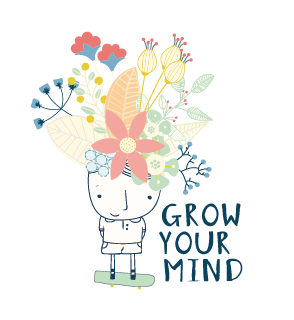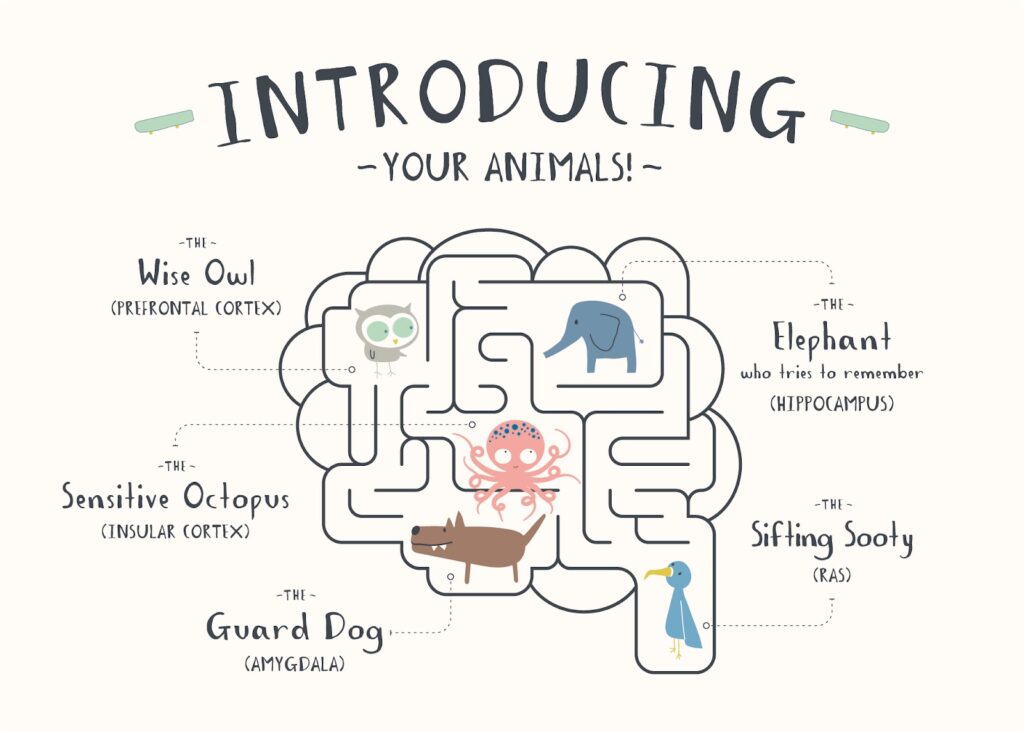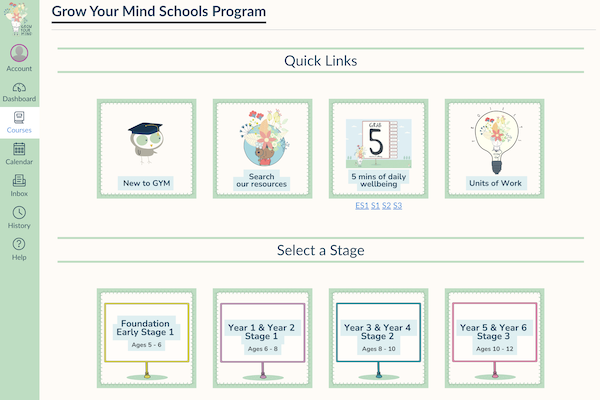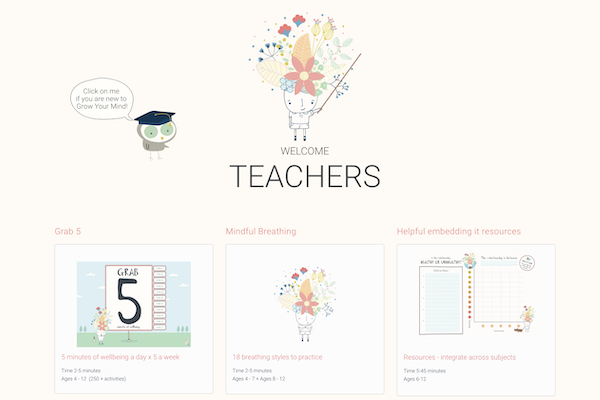
My Sifiting Sooty (Reticular Activating System) picked up two fantastic pieces of news this week:
- Smiling Mind are calling for a Minister for Children, to ensure there is adequate focus and funding to address the growing crisis in our kids’ mental health and wellbeing. They want us all to sign a petition. We have.
- Dr Addie Wootten, CEO of Smiling highlighted research that showed that focusing on improving mental wellbeing early in life can reduce the prevalence of mental illness by a factor of eight.
In Wootten’s words: “That means if we work hard during childhood to build skills and strategies and ensure kids are feeling supported, connected and safe, we could see eight times fewer people experiencing mental illness later in life.”
Let that soak in. If we collectively work hard in supporting our children NOW we could see EIGHT times fewer people experiencing mental illness later in life.
This is MASSIVE and POSITIVE news.
We are a mental health social venture whose entire reason for being is for primary school kids, educators and families to know: we all have mental health and we can all learn ways to look after it.
We provide content for classroom teachers to inspire kids to be and stay mentally fit.
We love the petition because it recognises that there is leadership that is needed to support children to ensure the systems are in place for early diagnosis. And we love that there is a call for a comprehensive approach to effectively teach mental fitness skills to children now in order to support a state of positive mental wellbeing throughout life. In her opinion piece in the Sydney Morning Herald Dr Wootten writes:
“Mental wellbeing isn’t just something that develops over time. A child needs the right balance of structure, support, learning opportunities and challenge to develop those skills that underpin mental wellbeing and resilience. We must consider it as a crucial development focus – as we do reading, writing and arithmetic.”
What are positive mental health strategies?!
Essentially they are coping skills that help children go about life in a productive, resilient and engaged manner. They are strategies that contribute to mental wellbeing. Set backs come and go, sadness, hurt and failure. Our kids will face challenges, they may already be facing extraordinary ones. The idea is not simply teaching them to ‘bounce back’ but instead to support them to feel less overwhelmed and hopeless in the face of adversity. We want kids to be prepared in their bodies and brains for what we hope will be a long life.

What are examples of positive mental health strategies?!
Strategies that promote mental fitness might look like children practising gratitude or mindful breathing. It could be kids knowing what a healthy friendship is, understanding their brain and how it learns. Perhaps they practice moving their body and seeing that it helps their mood. Or they develop an awareness of the importance of sleep.
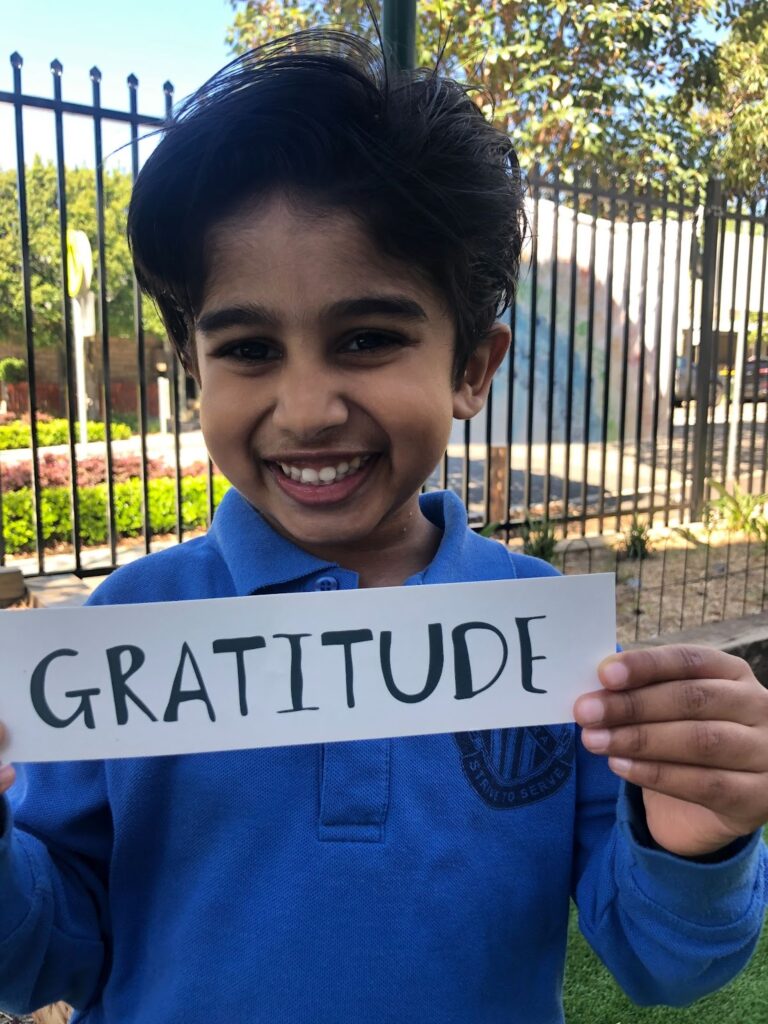
Positive mental health strategies look like kids making time for joy. They might learn that when we are helpful and kind we are more likely to stay mentally healthy. We want kids to see that if they can name their emotions they may find them less overwhelming. Getting kids active, outside and in nature is a key way to enable them to feel more able to cope and hopeful about the future. It’s a practice.
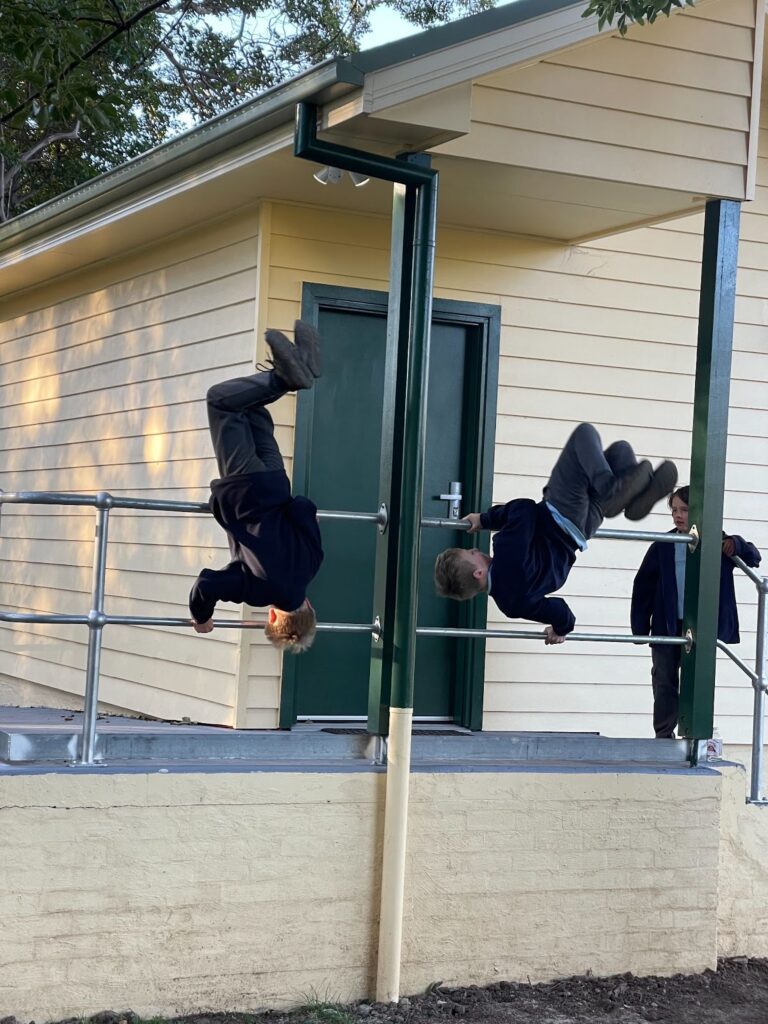
Think of teaching positive mental health strategies to primary school kids as akin to charging your electric vehicle before you head out on an adventure. And then charging it again, and again and again! If you go for a run today that is fantastic. You are not physically fit for life though simply because you went for one run. Same thing with your mental fitness, it’s ongoing, it takes work but that work can be fun.
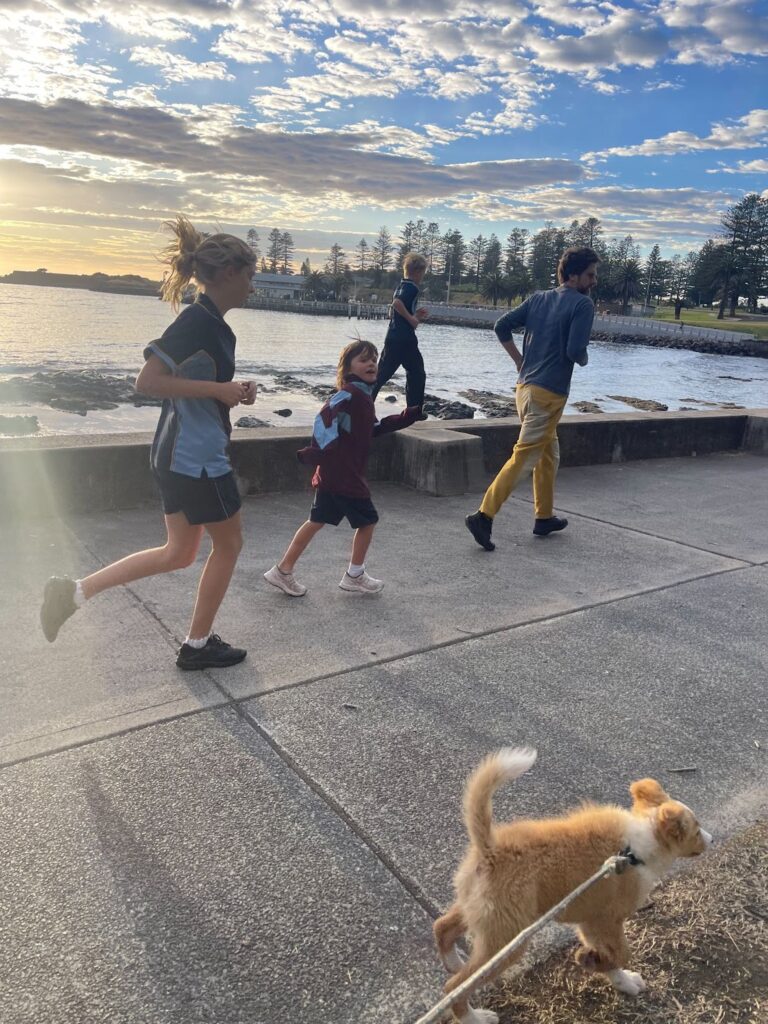
At Grow Your Mind we are on a mission to make teaching mental fitness and positive wellbeing strategies engaging and playful. How have we been doing that?
- We have 4 seasons of a children’s mental health podcast that is hosted by kids, with the sole purpose to teach other kids HOW to look after their mental health.
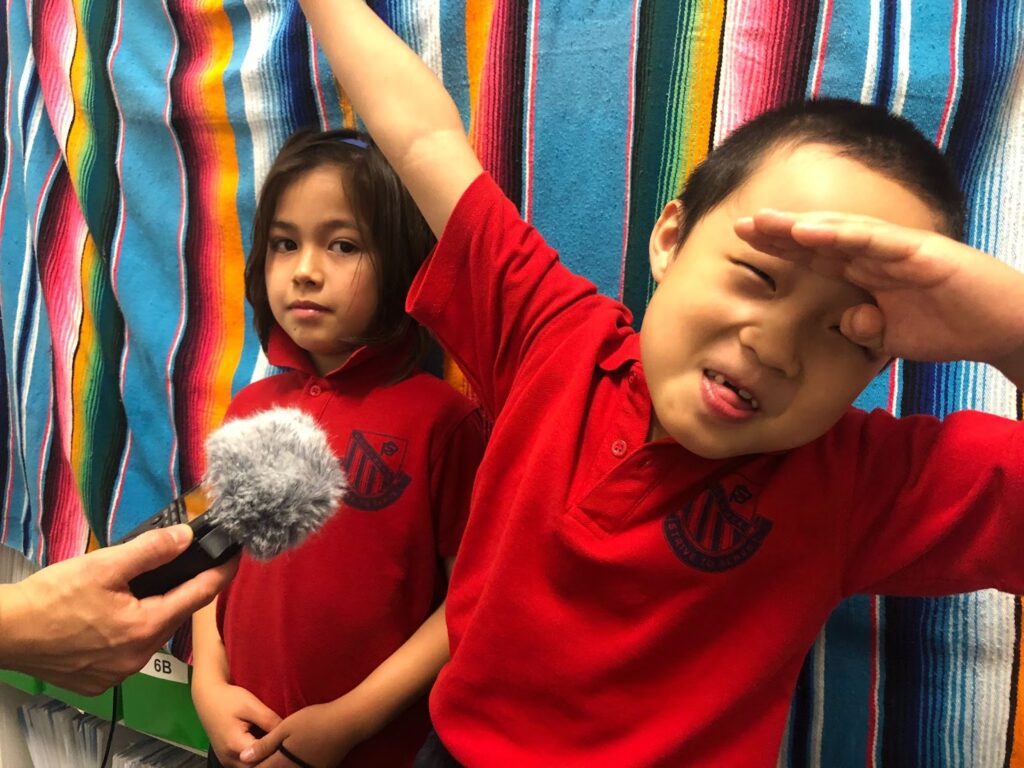
Two fantastic kids hosting the Grow Your Mind podcast
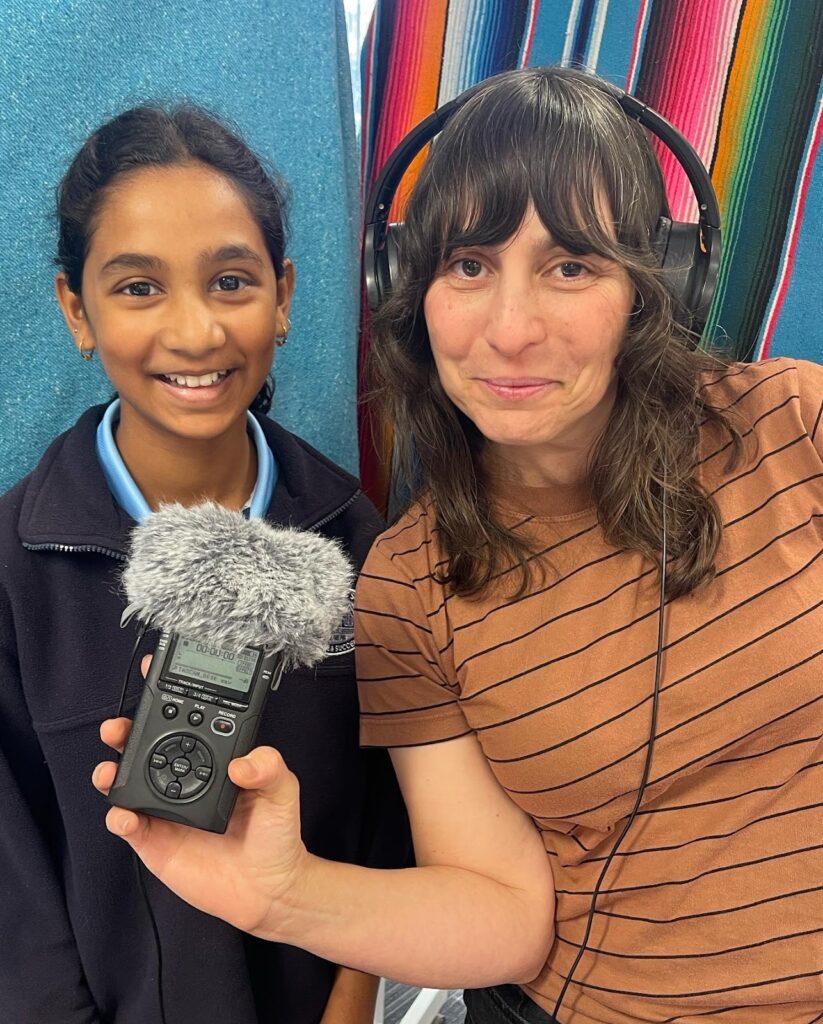
Another legend of a student hosting our children’s mental health podcast
- We have a soundtrack of NON-painful wellbeing songs on Spotify that pack a punch! The lyrics are ALL about mental health, how to maintain good friendships, deal with setbacks, pause before reacting, consent. We even created a music clip.
- We use storytelling and awe as a core way to teach resilience. We created playdough portraits and recorded videos of epic tales about remarkable people who have overcome adversity and created a meaningful life.

Playdough images of incredible people who have overcome adversity
Watch a 30 second clip of one of our Guess Who playdough creations coming to life. Prepare to be inspired!
- We have designed workshops for educators to boost their own wellbeing so that they can truly nurture their students’ mental health.
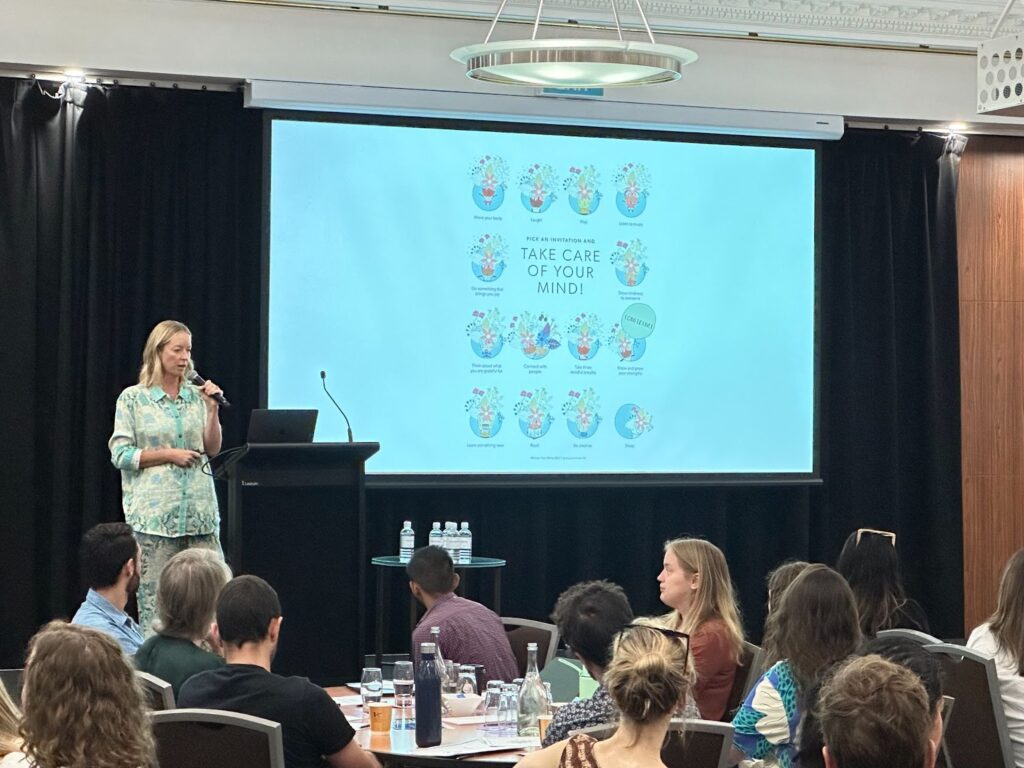
Julia Delaney, Head of Curriculum and Content at Grow Your Mind delivering a workshop to school teachers
- Working with teachers we have built a NSW department quality-assured online platform for primary school kids to be able to teach the skills to boost mental fitness every single day, for 5 minutes or for a full lesson. We use the brain to give purpose to positive mental health lessons.
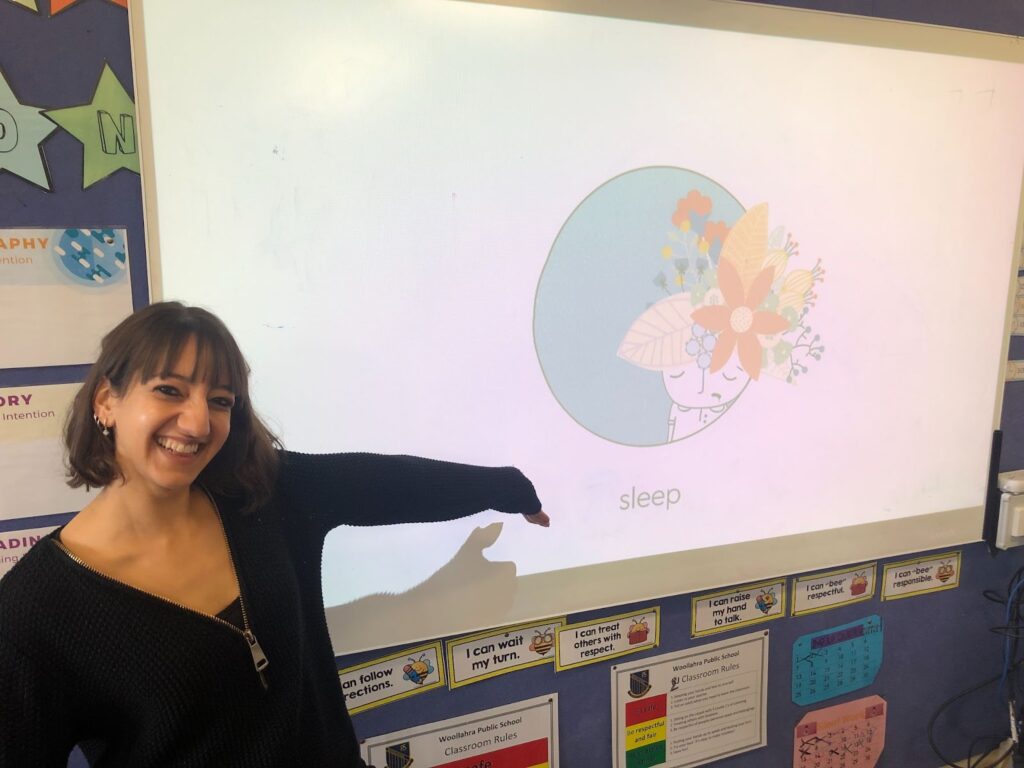
Primary School teacher and Grow Your Mind Ambassador – Janey Jankelson
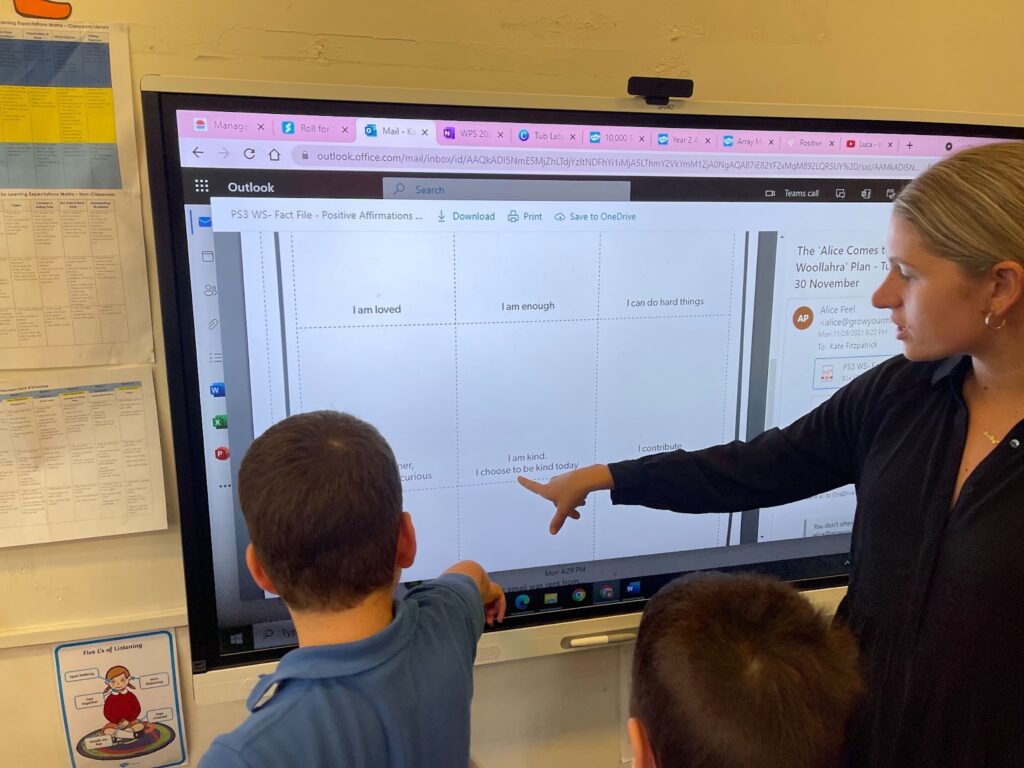
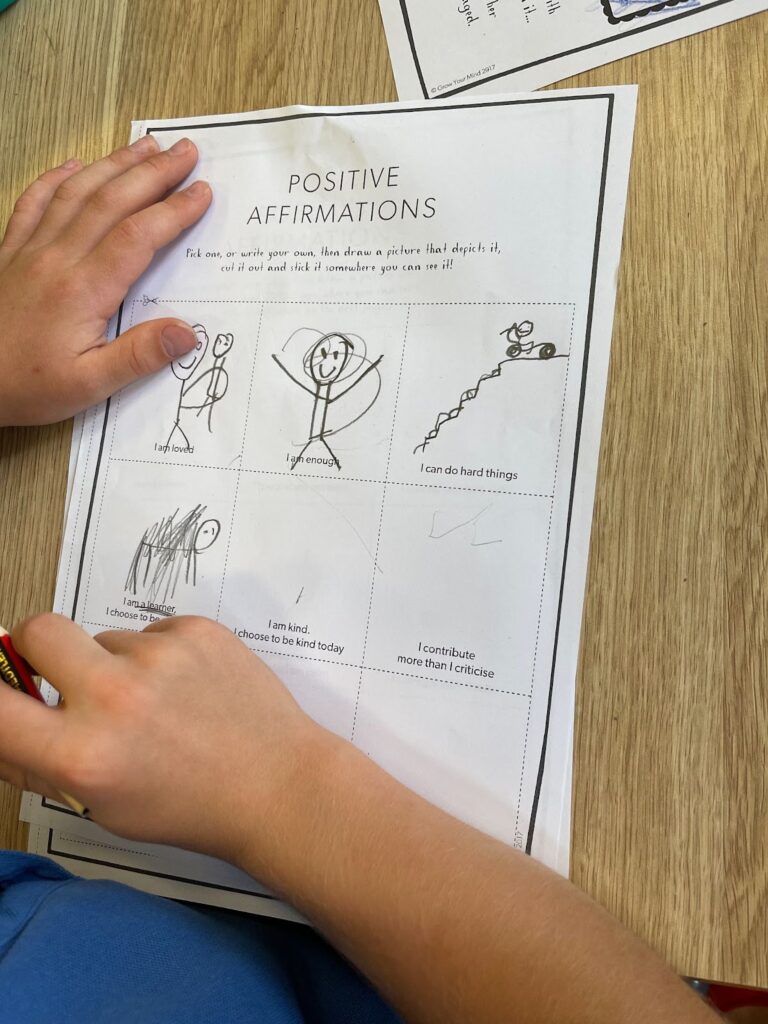
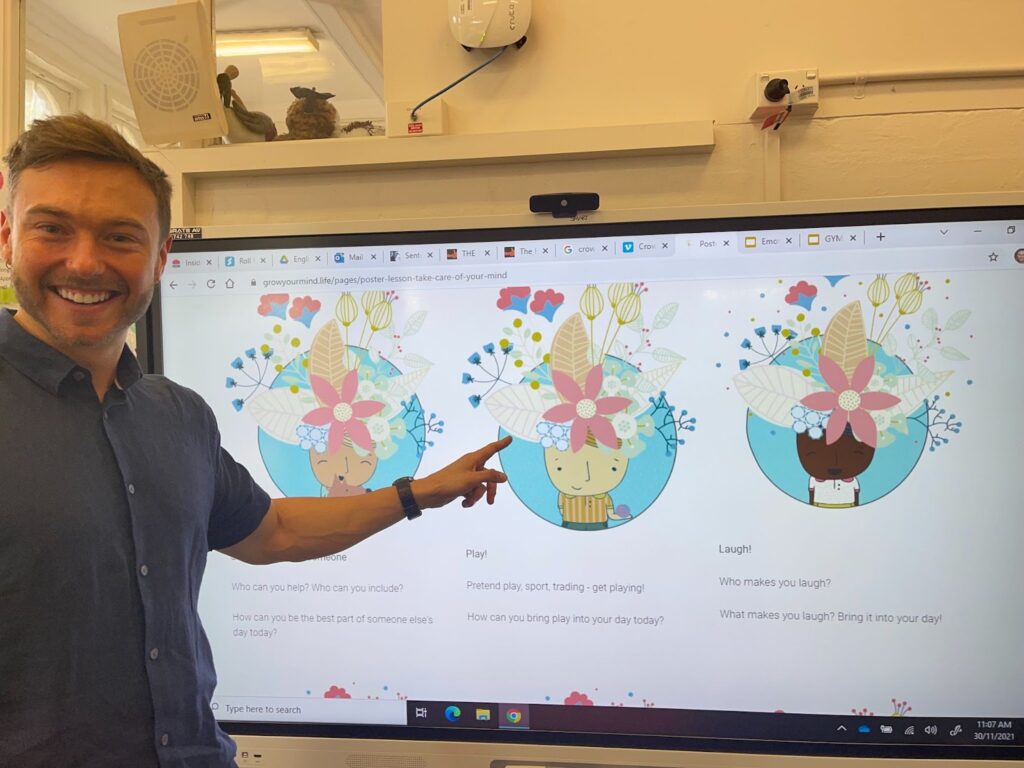
So that’s some of what we have been doing for the last 6 years… Now will a Minister of Children for this age group really make a big difference?
Yes, we believe it will and we encourage you to sign the petition. AND for mental health education to be delivered in a high impact and engaging way to primary school children there are some key things that must happen.
A few years ago I was lucky enough to hear Christine Morgan (the CEO of the National Mental Health Commission and National Suicide Prevention Adviser to Prime Minister Scott Morrison) speak at a PESA conference. Christine planted the seed that perhaps mental health education needs to be in its own lane in the curriculum. The reasoning: you can’t separate learning and wellbeing. Upon sharing the petition teachers have been contacting me with a similar sentiment, wanting to see Health as a core subject such as English and Maths and desperately wishing it to be delivered by teachers passionate and skilled in these areas.
We believe this too: Mental health education should be its own subject. But we also strongly believe that mental health and wellbeing needs to be applied to all areas of the curriculum. When we train teachers to implement Grow Your Mind we implore them to make it real and authentic for their school setting. And to embed wellbeing in multiple areas of the curriculum.
For example, growth mindset is often a topic that students explore during the PDHPE and Grow Your Mind curriculum. They may even discover the learning pit and intellectually understand that learning takes perseverance, that mistakes help us learn and that indeed there is always an uncomfortable part of learning. They get it. But when it comes to a maths task that they find tricky, suddenly the growth mindset disappears. Emotionally they are not there yet, they give up, they avoid or they disrupt. This is why we strongly encourage schools that use Grow Your Mind, to display and refer to our resources outside of their allocated 45 minutes!
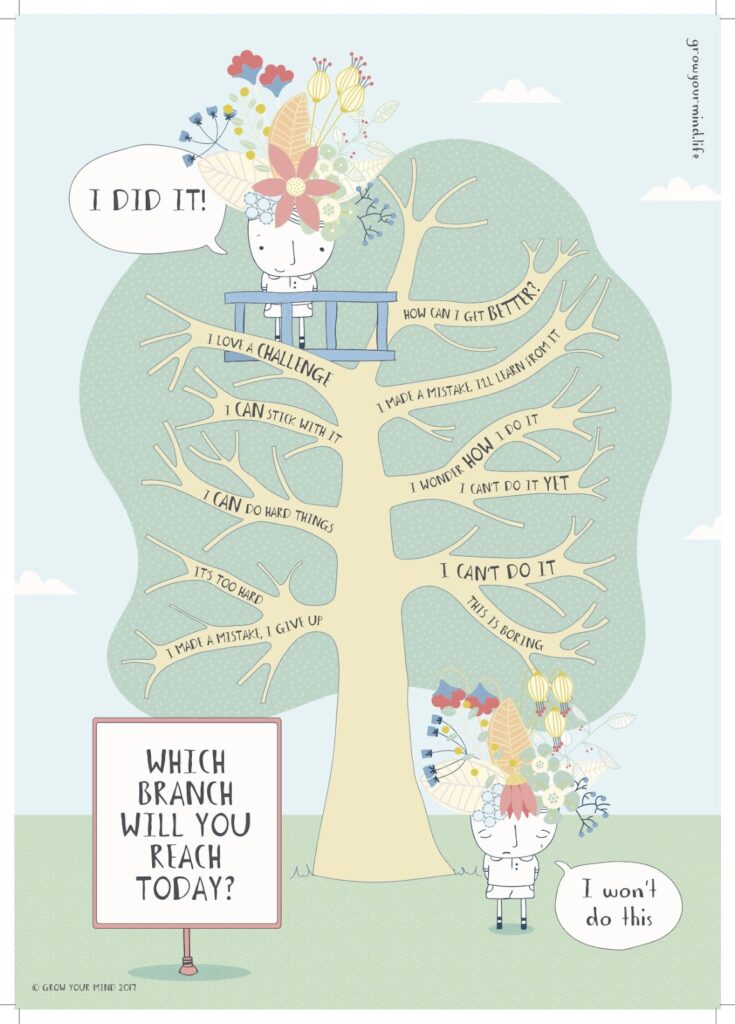
Growth Mindset Tree Poster
We need to remind students as they struggle, that learning can be hard but that they can do hard things. We teach kids that they can train their Guard Dog (the amygdala) to ask a question when they feel threatened by a sense of failure: is this a threat, a challenge or an opportunity? The Guard Dog can then tell the Elephant (hippocampus) to remember that making mistakes and finding learning hard is NOT a threat.



Here’s the thing, we are forgetful. Hence all of that reminding.
We forget that we are wired for resilience, and our students forget this quickly too. The reason I like the swimming lane analogy combined with the concept of wellbeing embedded in all areas of the curriculum is that it will allow us to offer wellbeing in the most rich, effective and sustainable way.
Finally, bring on the concept that we ALL have a role to play in the mental health and wellbeing of our children.
What that looks like for us at Grow Your Mind:
- Educators + parents knowing and applying positive mental health habits to themselves
- Educators + parents teaching and embedding positive mental health habits into their wellbeing culture
- Students knowing how to proactively look after their mental health and have a range of coping skills to use when things go poorly for them.
- Educators, school staff, parents and community members knowing where and how to get help when a child is not coping
- Brilliant initiatives like the Kids Helpline being used and supported widely
So where can educators start? Especially those that may feel stressed or awkward at the thought of teaching mental wellbeing?
Use our podcast. The episodes can do some of the teaching for you.
Take one of our courses so that you can apply wellbeing science to yourself first!
Play one of our songs during a movement break or as background music while students complete a task
Download the Smiling Mind app! Loads of incredible meditations for children and adults.
Collectively we can all work together to reduce a child’s chances of developing poor mental health. Spread the word, share this blog and follow the links above.
